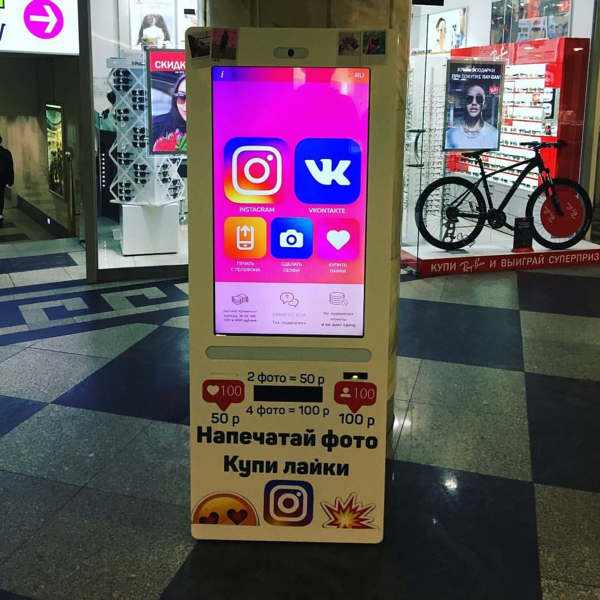By Jon Horsley and Ellie Glason
Click farms have been on our radar for some time, but when the following video, first tweeted by Jamie Bartlett https://twitter.com/JamieJBartlett, was passed around the Ginger Comms office we were enthralled.
To see the inside of an actual “click farm” in China – where hundreds of phones are set up and connected to social media, ready for someone (who is paid a pittance) to click “like” on whatever content they are instructed to – was fascinating.
And it’s not limited to Chinese click farms, or taking place entirely out of sight. Here’s a picture of a vending machine in Russia at which passersby can pay 50 roubles to get 100 likes on Instagram. You can’t get much more public than that.

The tactics of false engagement are obviously letting down consumers, brands and may have serious political consequences beyond steadily chipping away at the validity of social media and influencer activity. People just do not trust social content much – it’s entertaining, but not reliable.
And as many of us know, there simply aren’t reliable metrics to judge the value of your social media content.
The academic paper: Successful Social Media Measurement From an Agency Standpoint by Emily Cray states:
Most commonly, the favored metrics are “vanity metrics,” such as #tweets, “likes”, shares or mentions. These metrics show interaction with the brand, but are more insightful when converted into rates like share per post or retweets per tweet (i.e. amplification rate). These rates can potentially help advertisers understand the reach of the channel.
So unreliable vanity metrics combined with false engagement activity equals a big problem with social media platforms for brands.
One of the reasons why we think 2019 is the year of earned media. Traditional media relations remains a solid, robust and trustworthy pillar of any PR campaign, and one brands should continue to rely on for communication of their key messages.